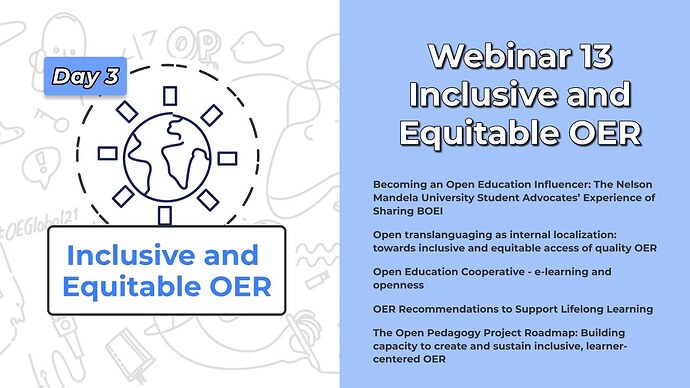Christina Riehman-Murphy (Penn State University Libraries), Bryan McGeary (Penn State University Libraries)
Open Pedagogy projects invite students to be collaborators, contributors, and creators who shape public knowledge. Because an open pedagogy’s scope typically looks beyond the confines of a traditional classroom learning space, these projects are multi-faceted and require a project management plan to be sustainable. With this in mind we developed the Open Pedagogy Project Roadmap, a module-based discipline-agnostic workshop that will assist faculty in planning, finding support for, sharing, and sustaining an open pedagogy project regardless of its size or scope.
While there are many affordances of open pedagogy projects for both students and instructors alike, there are also nuances that instructors may not have considered for traditional assignments which stay within the closed digital or physical classroom learning environment. Open pedagogy projects are designed with the intention of sharing them openly with future publics — be that with future students, or out on the web — to be reused, revised, or remixed. Open pedagogy projects also invite students into a different relationship with instructors and with knowledge. They invite students to be collaborators and creators instead of learners and consumers. Thus, there are additional considerations for both instructors and students alike.
While there are a number of case studies detailing open pedagogy projects and useful handbooks to guide faculty who are interested in exploring open pedagogy projects, a review of the literature affirmed our empirical evidence that there was a space for this type of practical project management guidance for open pedagogy projects. Drawing from our collective experiences and the literature, 5 Ss of open pedagogy projects emerged as essential tenets to consider when planning for and sustaining one.
The 5 Ss
Scope: your values, your goals, your capacity
Support: structural, systemic, logistical, technological
Students: outcomes, assessment, agency, ethical concerns
Sharing and Sustaining: sharing your work, sustaining it with an action plan
These 5 Ss grew form the foundation of a four-module instructor-facing workshop entitled The Open Pedagogy Project Roadmap which we've designed to guide faculty through the process of planning, implementing, sustaining, and sharing their own open pedagogy projects In this presentation we will discuss our collaborations with faculty on two open pedagogy projects and how this work informed the creation of our Open Pedagogy Project Roadmap, which we've designed to guide faculty through the process of planning, implementing, sustaining, and sharing their own open pedagogy projects. We will discuss issues inherent in this work, such as values, student agency, assessment, and the role of open pedagogy in fostering diversity, equity, inclusion, and accessibility.
Extended abstract: OE_Global_2021_paper_124.pdf 📄
Webinar Information
This presentation is part of Webinar 13 Inclusive and equitable OER, Building capacity taking place in your local time → .
Webinar Access (registered conference participants only):
![]()
![]() Go to Webinar 13
Go to Webinar 13
UNESCO OER Action Area: Inclusive and equitable OER, Building capacity
Language: EnglishSee the other presentations that take place in this webinar.
Presentation Recording
Participate
Before the webinar the authors will be asked to reply below with links to their presentation materials, related videos, and other relevant links, as well as prompts for discussion here.
For anyone that missed the live session, an archive will be posted here as soon as possible.
Conference participants are urged also to reply below with questions, comments for the presenters or to share related resources.
